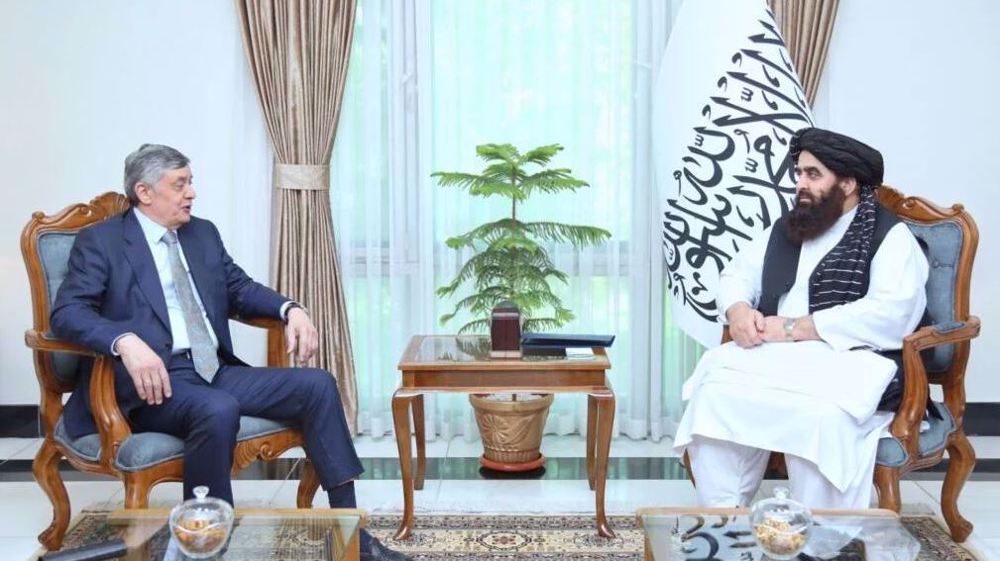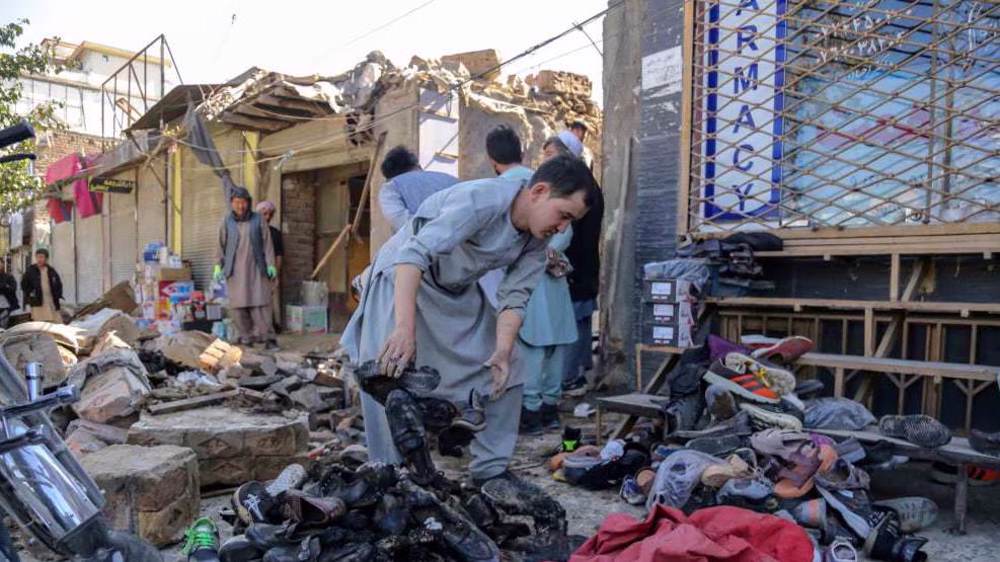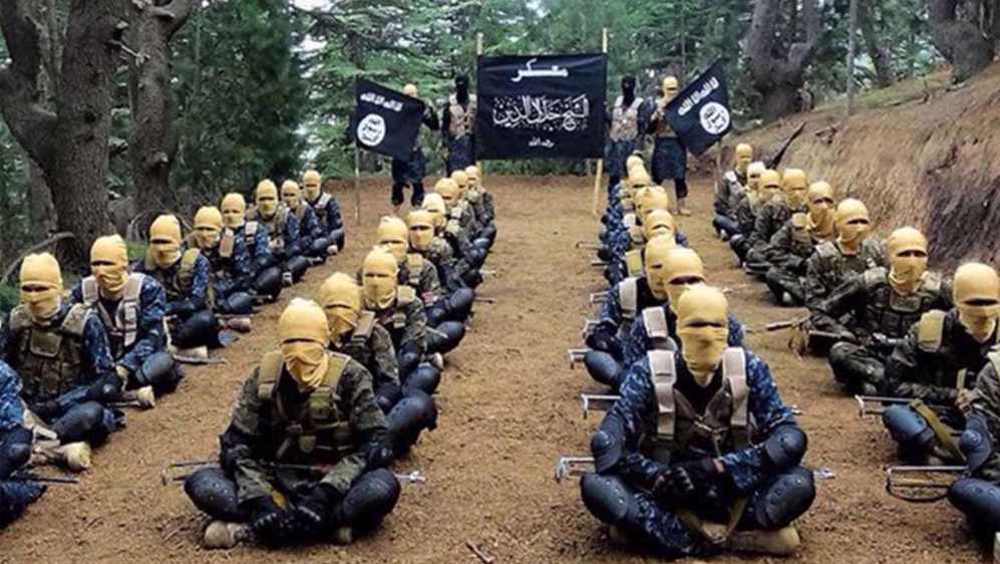Four die in phone market blast in Afghanistan's Khost province
Four people have been killed in a powerful explosion at a mobile phone market in Afghanistan's southeastern province of Khost.
Khost provincial police chief Faizullah Khairat said the blast on Sunday was caused by a "remote controlled bomb." He said the explosion "happened at around noon in a market where people go to download music and videos to their mobile phones."
Habib Shah Ansari, the director of Khost's health department, said "over a dozen wounded" people had also been taken to hospital in the provincial capital of the same name.
There was no immediate claim of responsibility for the fatal bomb attack.
Khost, which borders Pakistan, has come under attack by the Taliban militants several times in recent months. The militants have attacked such markets in the past since music was one of the many forms of entertainment banned during the Taliban's 1996-2001 rule.
And in late May, a car bombing claimed by Taliban targeted a CIA-funded Afghan militia group in Khost. Over a dozen people were killed.
Last month, Taliban vowed to make Afghanistan a "graveyard" for foreign forces after US President Donald Trump made an open-ended commitment to keep American boots on the ground in the country. The militants have warned that they will be stepping up attacks until the foreign forces fully withdraw from Afghanistan.
The country is still suffering from insecurity and violence 16 years after the United States and its allies invaded Afghanistan as part of Washington’s so-called war on terror. The Taliban militants were removed from power, but militancy continues to this day.
In addition, the Daesh Takfiri terrorist group has also gained ground and recruited militants across several provinces of Afghanistan over the past few years.
Kabul considers plan to arm 20,000 civilians to tackle militancy
The latest deadly attack comes amid reports that the government in Kabul is considering a plan to arm 20,000 civilians to fight Taliban and other militant groups. The plan is aimed at training and arming civilians to defend territories that have been cleared of militants.

The plan, however, has sparked concern that the local forces could become another thuggish militia and end up terrorizing the people they are supposed to defend.
Commenting on Kabul's plan, Patricia Gossman, a senior researcher at Human Rights Watch, said, "The Afghan government's expansion of irregular forces could have enormously dangerous consequences for civilians."
VIDEO | Amsterdam protests exploited and called anti-Semitic
VIDEO | Israeli assassination campaign
VIDEO | Economic crisis affecting Israel
VIDEO | Short film details Israeli strike on Gaza’s Al-Ahli hospital in October last year
VIDEO | Israeli use of foreign mercenaries
Israeli airstrikes kill 6 paramedics in southern Lebanon
VIDEO | IAEA director general Rafael Grossi visits Iran
Iran hails martyred Hezbollah media chief as ‘sonorous voice’ of Lebanese nation










 This makes it easy to access the Press TV website
This makes it easy to access the Press TV website